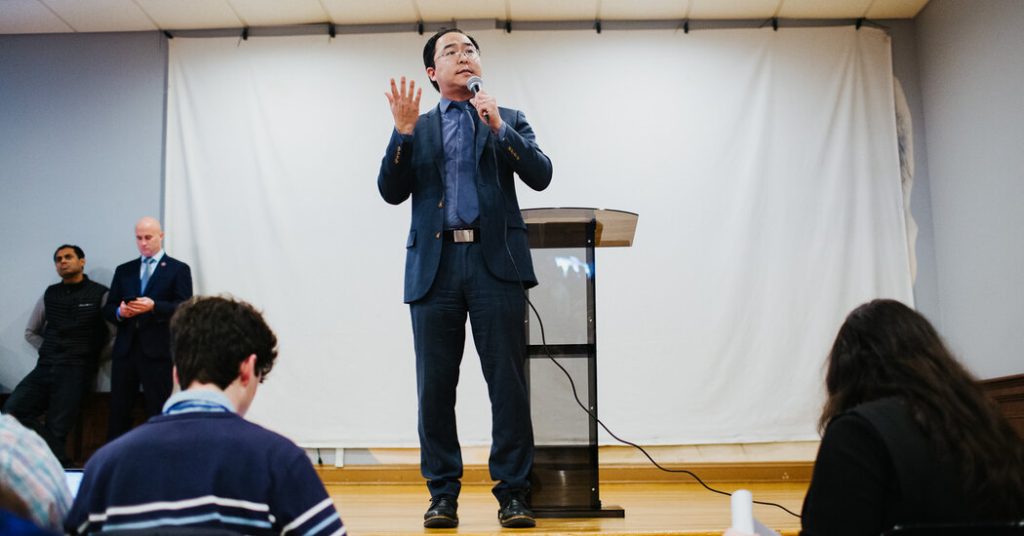A federal judge recently granted an emergency request to force New Jersey to redesign its primary election ballot, which has been a longstanding source of electoral power for the state’s Democratic and Republican parties. The ruling will likely reshape politics in New Jersey, particularly affecting the June primary races. The decision was made by Judge Zahid N. Quraishi, who emphasized the importance of upholding the integrity of the democratic process for primary elections. The new ballot design is intended to create a fairer and more representative electoral system by grouping candidates together based on the office they are running for, rather than endorsements by party leaders.
This decision has significant implications for the race to replace Senator Robert Menendez, a New Jersey Democrat who has been accused of corrupt practices. Representative Andy Kim, a Democrat vying for Menendez’s seat, was a key figure in the push for ballot reform, making the issue a focal point of his campaign. The contentious ballot design in New Jersey has previously enabled party leaders to dictate the positioning of candidates, thereby influencing election outcomes. The lawsuit filed by Kim successfully led to the court ruling that will alter the ballot design process ahead of the upcoming primary election.
New Jersey’s unique method of designing primary election ballots has sparked controversy due to the unfair advantage it provides to candidates endorsed by political party leaders. The practice of placing favored candidates in prominent positions on the ballot, known as “the line,” has been a longstanding tradition that has allowed political insiders to influence election results. Critics argue that the current system undermines the democratic process by limiting voter choice and accountability. With the court’s intervention requiring a more impartial ballot design, candidates will have a fairer chance to compete, and voters will have greater influence over election outcomes.
Advocates for reforming the ballot design in New Jersey have welcomed the judge’s ruling as a victory for democracy and fair representation. Groups such as Working Families have long pushed for a ballot system that prioritizes voter choice over party preferences. The new ballot design is expected to provide voters with a more meaningful choice when selecting candidates, paving the way for a political landscape that is more responsive to the electorate. The decision reflects a broader nationwide trend towards reforming electoral practices to ensure transparency and fairness in the democratic process.
Research conducted by professors from prestigious universities such as Rutgers and Princeton has highlighted the significant impact of the county line system on election outcomes in New Jersey. Studies have shown that candidates endorsed by political party leaders and placed on the county line have a substantial advantage over other contenders. The new ballot design aims to level the playing field and reduce the influence of party insiders on election results. By grouping candidates based on the office they are running for, rather than party endorsements, the revised ballot layout seeks to empower voters and promote a more democratic electoral process.
The legal battle over the ballot design issue in New Jersey has underscored the importance of electoral reform in ensuring a fair and transparent democratic system. Representative Andy Kim’s efforts to challenge the status quo and advocate for a more equitable ballot layout have resulted in a significant victory for proponents of reform. Moving forward, the redesigned election ballot is expected to enhance voter choice, encourage greater political participation, and foster a more accountable political environment in New Jersey. The court’s decision signifies a step towards a more inclusive and representative electoral system that prioritizes voter interests over party influence.


